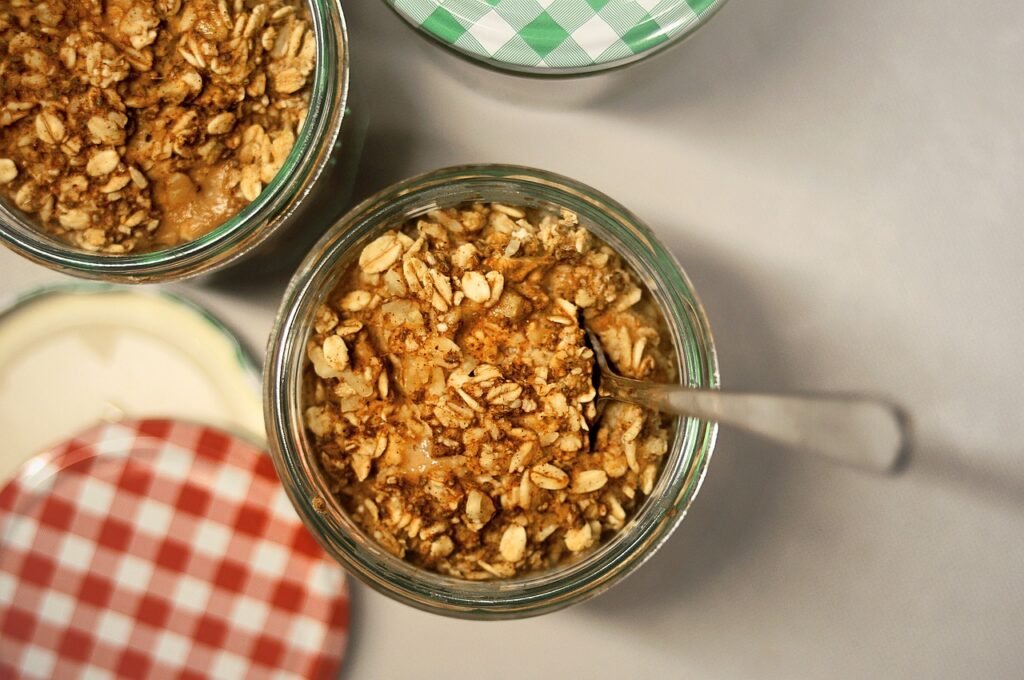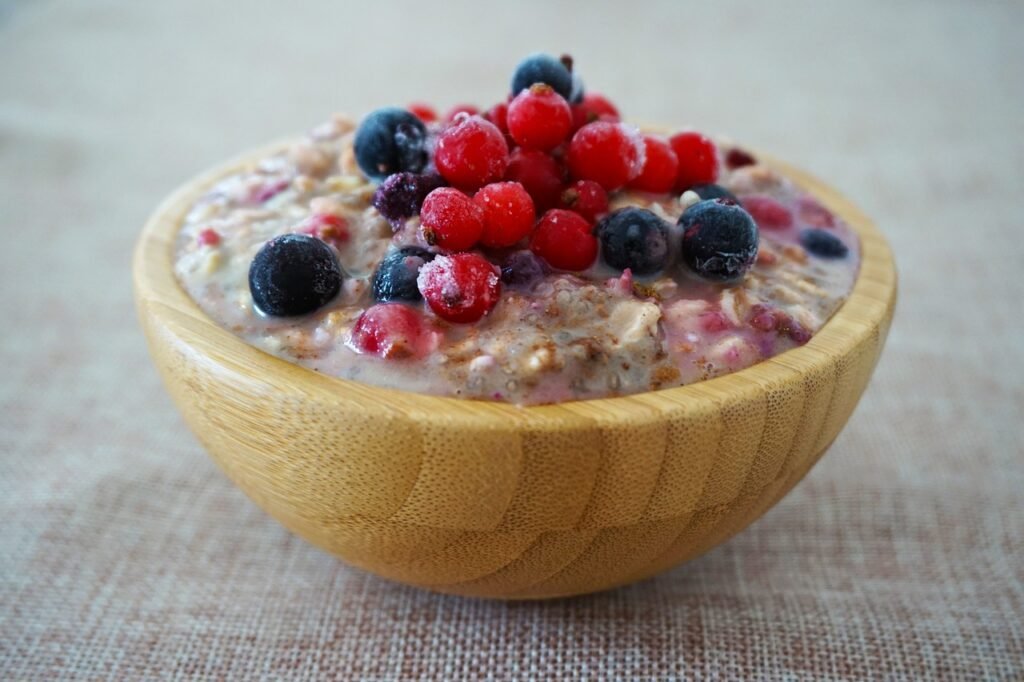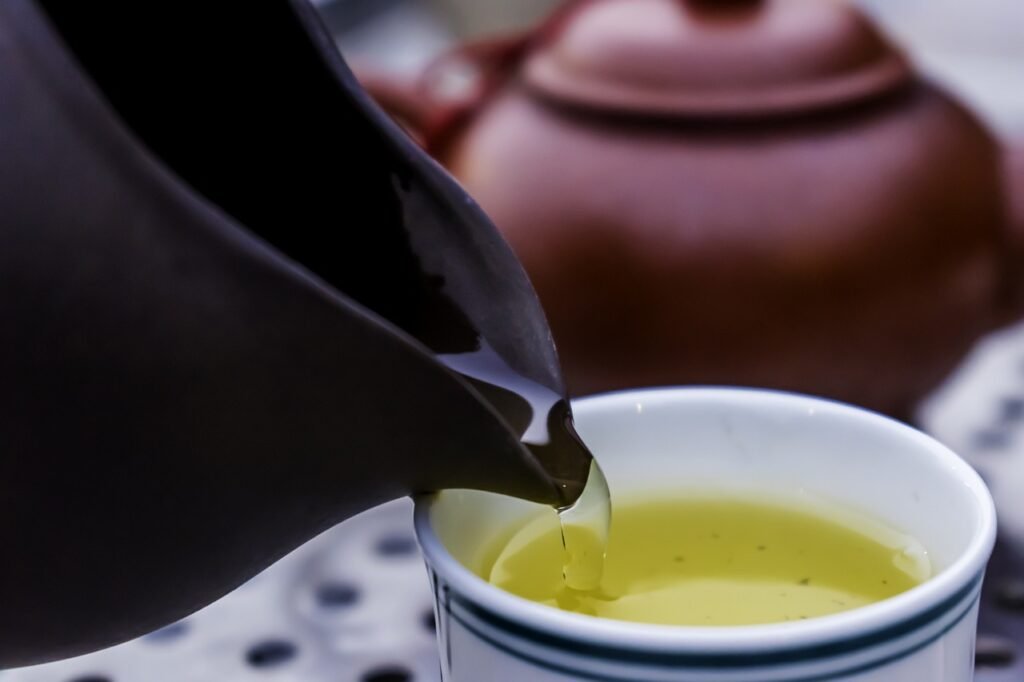
- Intro
- Unpacking the Nutritional Content of Overnight Oats
- The Health Benefits of Incorporating Overnight Oats into Your Diet
- Are There Any Downsides to Eating Overnight Oats?
- Making Your Overnight Oats Even Healthier
- Easy and Nutritious Overnight Oats Recipes to Get You Started
- The Verdict: Are Overnight Oats Truly Healthy?
- Frequently Asked Questions About Overnight Oats
Intro
Overnight oats have surged in popularity as a convenient, versatile, and seemingly healthy breakfast option.
But with so many trendy diets and superfoods taking the spotlight only to fade away, it’s reasonable to ask: are overnight oats healthy, or are they just another food fad?
In this deep dive, we’ll explore the nutritional value of overnight oats, their health benefits, potential downsides, and ways to make them even healthier.
Plus, we’ll share some delicious and nutritious recipes to get you started on the right foot.
Unpacking the Nutritional Content of Overnight Oats
Overnight oats are not just a convenient breakfast option; they are a powerhouse of nutrition, making them an excellent start to the day for anyone looking to fuel their body with essential nutrients.
By soaking oats overnight in liquid, such as milk or water, you allow them to soften and become easily digestible, while also beginning the breakdown of starches.
This whole grain is abundant in several important vitamins and minerals, offering a robust supply of manganese, phosphorus, magnesium, iron, zinc, and folate.
Oats are revered for their content of beta-glucan, a soluble fiber that plays a crucial role in reducing cholesterol levels and promoting a feeling of fullness, which can aid in weight management.
This fiber is not only beneficial for your heart health but also for stabilizing blood sugar levels, making overnight oats a smart choice for those managing diabetes or seeking sustained energy throughout the morning.
Additionally, the protein content in oats is higher than that found in many other grains, ensuring that a serving of overnight oats provides a well-rounded meal that supports muscle repair and growth, particularly after exercise.
The inclusion of antioxidants in oats further enhances their health profile, offering protection against oxidative stress and inflammation.
When you choose overnight oats as part of your morning routine, you’re not just opting for convenience; you’re investing in a meal that supports overall health and well-being through its rich nutritional composition.
The Health Benefits of Incorporating Overnight Oats into Your Diet
Incorporating overnight oats into your diet can yield multiple health advantages, thanks to their nutrient-dense composition.
A significant benefit comes from the high fiber content present in oats, particularly the beta-glucan type, which supports digestive health and encourages regularity. This can be a game-changer for those struggling with digestive issues such as constipation.
The heart also reaps benefits from the inclusion of overnight oats in one’s diet. The soluble fiber, beta-glucan, has been associated with the potential to lower levels of LDL (bad) cholesterol, contributing to a reduced risk of cardiovascular diseases.
Oats are a good source of both soluble and insoluble fiber.
This makes overnight oats a heart-friendly choice, especially important in today’s fast-paced lifestyle where heart health is a major concern.
Stabilized energy levels throughout the morning are another upside of making overnight oats a staple breakfast choice.
The complex carbohydrates in oats ensure a gradual release of energy, preventing the spikes and crashes often experienced with more refined breakfast options.
This steady energy supply is crucial for maintaining focus and productivity, making overnight oats particularly beneficial for those with demanding schedules.
Additionally, the satiating combination of fiber and protein found in overnight oats can play a pivotal role in weight management strategies.
By promoting a feeling of fullness for longer periods, overnight oats can help curb the temptation to indulge in less nutritious snacks, supporting efforts to maintain or achieve a healthy weight.
Overall, the diverse range of health benefits associated with overnight oats underscores their value beyond mere convenience, positioning them as a beneficial addition to a balanced diet.
Are There Any Downsides to Eating Overnight Oats?
Despite the myriad health benefits that overnight oats bring to the table, there are a few cautionary notes to consider.
The base ingredient itself, oats, is generally healthy, but the overall nutritional impact of your overnight oats can vary widely depending on the additions and substitutions you make.
It’s easy to inadvertently transform a wholesome meal into a less beneficial one with high-calorie or high-sugar toppings such as sweetened dried fruits, chocolate chips, or generous dollops of flavored yogurts.
For those watching their sugar intake, it’s particularly important to be mindful of the sweeteners used.
Natural sweeteners like honey and maple syrup, while healthier alternatives to refined sugar, still contribute additional calories and should be used sparingly.
The choice of liquid used to soak the oats can also affect the healthfulness of the meal.
Options like full-fat dairy milk or coconut milk can add significant amounts of fat and calories, potentially offsetting some of the cardiovascular benefits that the oats themselves offer.
People with specific dietary restrictions or food sensitivities must also tread carefully.
Although oats are naturally gluten-free, cross-contamination with gluten-containing grains can occur during processing.
Therefore, those with celiac disease or non-celiac gluten sensitivity should ensure their oats are certified gluten-free to avoid adverse reactions.
In addition, the high fiber content, while generally beneficial, may cause digestive discomfort in some individuals, especially those not accustomed to high-fiber diets. Starting with smaller portions and gradually increasing the amount can help mitigate potential gastrointestinal issues such as bloating or gas.
Ultimately, while overnight oats offer a flexible and nutritious breakfast option, paying attention to the ingredients you use is crucial to maintaining their health benefits and aligning with your dietary goals.
Making Your Overnight Oats Even Healthier

To elevate the health quotient of your overnight oats, thoughtful ingredient selection is key. Opt for fresh fruits like berries, apples, or bananas to infuse natural sweetness and an array of vitamins, antioxidants, and fiber without the need for added sugars.
Incorporating nuts and seeds, such as almonds, walnuts, or flaxseeds, introduces healthy fats, additional fiber, and a satisfying crunch that can keep you feeling fuller for longer.
Spices like cinnamon or nutmeg not only add depth and warmth to the flavor profile but also boast anti-inflammatory properties and can aid in blood sugar regulation.
For those looking to increase the protein content, a dollop of Greek yogurt or a scoop of your preferred protein powder can transform your oats into a more muscle-friendly meal—ideal for recovery post-exercise.
Experiment with plant-based milk alternatives, such as almond, oat, or soy milk, to keep the calorie count reasonable while ensuring your breakfast remains inclusive for those with dietary restrictions like lactose intolerance.
Remember, the beauty of overnight oats lies in their versatility. Each ingredient can be adjusted according to personal health goals and taste preferences, allowing for a nutritious breakfast that doesn’t compromise on flavor.
By consciously selecting your add-ins, overnight oats can seamlessly align with a health-focused lifestyle.
Easy and Nutritious Overnight Oats Recipes to Get You Started
Embarking on your overnight oats journey is both exciting and straightforward, allowing for a myriad of delightful combinations that cater to your personal tastes and nutritional needs. To begin, here’s a foundational recipe that’s both easy to prepare and packed with wholesome ingredients:
1. In a mason jar or any sealable container, mix together 1/2 cup of rolled oats with 1/2 cup of your choice of milk—almond, oat, soy, or dairy work beautifully.
2. Stir in a tablespoon of chia seeds to enrich your oats with a boost of fiber and omega-3 fatty acids, essential for heart and brain health.
3. Add a sprinkle of cinnamon or a dash of vanilla extract for a layer of natural sweetness and aromatic flavor without the sugar.
4. For a touch of sweetness, consider a drizzle of honey or maple syrup, keeping moderation in mind to maintain the meal’s health benefits.
5. Elevate your oats with a topping of fresh fruit such as sliced strawberries, blueberries, or banana for a vitamin-packed start to your day, alongside a handful of nuts like almonds or walnuts for healthy fats and a satisfying crunch.
6. After combining all ingredients, seal the container and let it rest in the refrigerator overnight. By morning, you’ll have a creamy, delicious breakfast waiting to be enjoyed.
This base recipe serves as a canvas for your creativity—feel free to play with different fruit combinations, experiment with spices, and swap in various nuts and seeds to tailor your overnight oats to your liking. The versatility of overnight oats not only makes them an enjoyable breakfast option but also ensures you’re getting a nutritious meal that aligns with your dietary preferences and goals.
The Verdict: Are Overnight Oats Truly Healthy?
When evaluating the healthfulness of overnight oats, it becomes clear that their benefits extend beyond mere convenience.
The core of their value lies in the nutritional richness of oats themselves, enhanced by the soaking process that aids in digestibility and nutrient availability.
This breakfast option shines as a source of essential vitamins, minerals, soluble fibers like beta-glucan, and antioxidants, all contributing to a range of health advantages from improved heart health to stabilized blood sugar levels and enhanced digestive well-being.
However, the health potential of overnight oats is not automatic; it is significantly influenced by the choice of ingredients and add-ins.
The foundation is inherently nutritious, but the final nutritional profile can be diminished by overly generous portions of high-calorie sweeteners or unhealthy fats.
Conversely, by selecting wholesome mix-ins such as fresh fruits, nuts, seeds, and using natural sweeteners sparingly, the health benefits can be amplified.
The adaptability of overnight oats allows for customization to fit individual health goals and dietary needs, making them a versatile option for anyone looking to enrich their diet with a nutritious meal.
It’s essential to approach overnight oats with a mindful strategy towards ingredients to truly harness their health-promoting potential.
When prepared with a focus on nutrient density and minimal added sugars and unhealthy fats, overnight oats stand out as a genuinely healthful choice.
This emphasizes the importance of individual responsibility in ingredient selection, ensuring that the convenience and taste of overnight oats do not come at the expense of nutritional value.
Frequently Asked Questions About Overnight Oats
*Q: What type of oats should I use for overnight oats?*
A: Although rolled oats are preferred for their hearty texture and nutritional profile, instant oats are an acceptable alternative. Keep in mind, however, that instant oats tend to become softer and may result in a less desirable texture after soaking.
*Q: Can incorporating overnight oats into my diet assist in weight management?*
A: Yes, overnight oats can be a beneficial component of a diet aimed at weight loss or maintenance. Their high content of fiber and protein can promote satiety, helping you feel fuller for longer periods, which is key in managing your overall calorie intake. Remember, successful weight management relies on a balanced diet and maintaining a calorie deficit.
*Q: How long can I keep overnight oats refrigerated?*
A: Prepared overnight oats can be stored in the refrigerator for up to 5 days. This makes them an excellent option for batch preparation at the start of the week, ensuring you have a nutritious, ready-to-eat breakfast each morning with minimal daily prep required.
*Q: Are there any special considerations for adding protein to my overnight oats?*
A: Adding protein to your overnight oats, such as Greek yogurt or a scoop of protein powder, is an excellent way to boost their nutritional value, especially for post-workout recovery. It’s advisable to select high-quality protein sources and be mindful of any additional sugars or artificial ingredients they may contain to maintain the healthfulness of your meal.
*Q: Can I make overnight oats without dairy?*
A: Absolutely! Overnight oats are incredibly versatile and can easily be made dairy-free by using plant-based milks like almond, soy, or oat milk. This adjustment makes them suitable for those with lactose intolerance or anyone following a vegan diet, without compromising on taste or nutritional benefits.
Pin this post to read later



